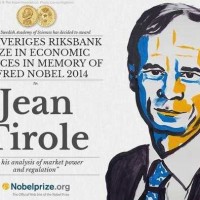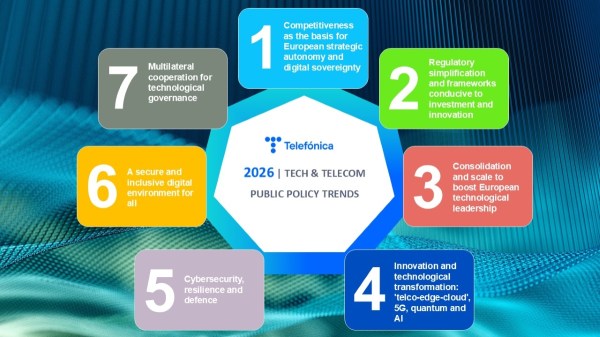This October, the Royal Swedish Academy of Sciences awarded the 2014 Nobel Prize in Economics to the French economist Jean Tirole, for his research on “Market Power and Regulation”. As such, the work of Tirole has had a great influence on the regulation of the telecommunication market in the European Union; in fact, one of his best known books, co-written with Jean-Jacques Laffont, is completely focused on this topic[1].
Even if the principal justification for the granting of the Nobel Prize is this core regulatory, the Swedish Academy also draws our attention to another aspect of his work: the rigor in the analysis carried out by Tirole. The Academy highlights that Tirole established a new standard of rigor in the field of Industrial Organization theory and regulation, that this rigor facilitated realism, and so Tirole’s models have sharpened policy analysis.
One may agree or disagree with the methodology and results achieved by Tirole in his economic analysis. It should be remembered that Tirole started his research in the 80s, and since then economic analysis has advanced beyond the static models that are the basis for his work. Specifically, he disregards entrepreneurship[2] and dynamic efficiency as powerful factors in explaining economic phenomena, which limits considerably the scope of application for his models.
However, it cannot be denied that his work is rigorous and consistent. At least, he states a theory, which may be refuted or accepted in order to improve our understanding of economic phenomena. And his proposals are always oriented to improve social welfare, even if his view of social welfare is static and thus incomplete.
Unfortunately, such rigor in economic analysis is often lacking amongst regulatory decisions that affect the telecommunications sector..
These decisions have significant effects on the affected agents and on the market, be it through the imposition of obligations (including structural obligations like divestures) or through sanctions (and the consequent damages claims) that can reach millions of Euros. They also change the incentives and behaviors of other players, impacting the market as a whole.
As these decisions have so deep and strong effects, they should be based on explicit and sound economic analysis. The overall goal should be, of course, improving social welfare. But in order to ascertain if a concrete behavior has harmed the welfare or if an obligation to provide services on cost-oriented prices is bound to improve it, the only way ahead is a rigorous economic analysis.
Regulatory bodies have failed to move with the times and update their approaches to take into account the latest economic theories. They seem to rely in conventional wisdom, which Tirole’s rigorous thinking has overturned in several instances, as the Swedish Academy highlights. Following the lesson of Tirole, NRAs and NCAs should consider again the relationship between market shares, or number of competitors, and social welfare, to name just a couple of issues. Maybe the conventional wisdom they rely on has to be overturned as Tirole taught us to do, using rigorous economic thinking[3].
The awarding of the Nobel Prize to Jean Tirole should act as a reminder to National and EU regulatory and competition authorities. They should not take decisions on regulated sectors or on the behavior of agents just based on their beliefs: they should base each decision on rigorous economic analysis proving how each decision is supposed to increase the social welfare.
This is how Jean Tirole works, and this is the reason why he has been granted the 2014 Economics Nobel Prize. Congratulations are in order for him, and let us hope that NRAs, NCAs and Governments will follow his example.
[1] Laffont, J-J. and J. Tirole (2000). Competition in Telecommunications. Cambridge, MA: MIT Press.
[2] In fact, two runners-up for this Nobel Price, Israel M. Kirzner and William J. Baumol, were nominated on the basis of their contributions to economy on the field of entrepreneurism. See http://thomsonreuters.com/press-releases/092014/2014-nobel-laureates-predictions
[3] For example, the spectacular growth of FTTH deployment in Spain, that undoubtly is supposing an increase in the welfare of Spanish people, may be explained by the lack of regulation of wholesale services for FTTH above 30 Mbps. See http://www.telefonica.com/en/about_telefonica/pdf/Regulatory_Economics_Working_Paper_N_3.pdf







